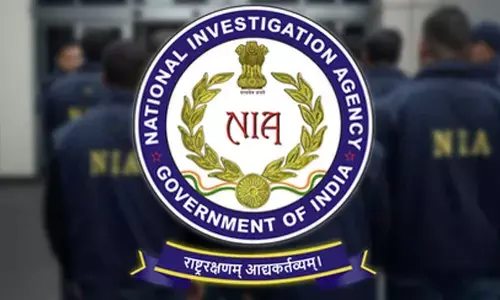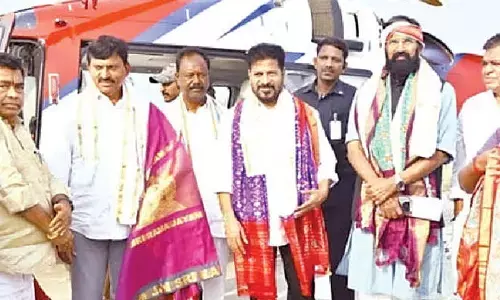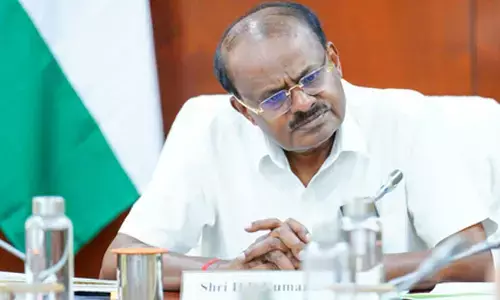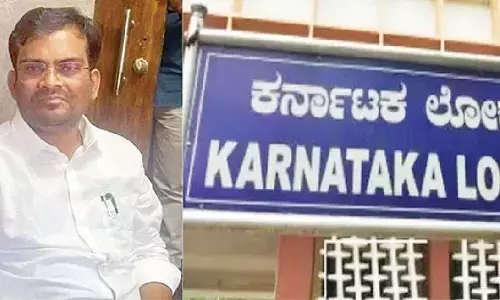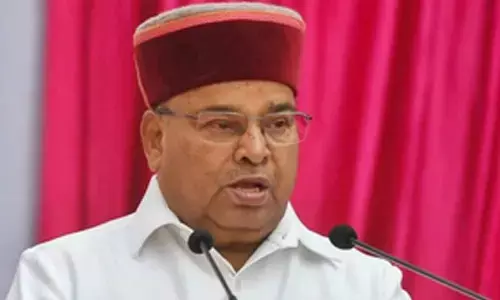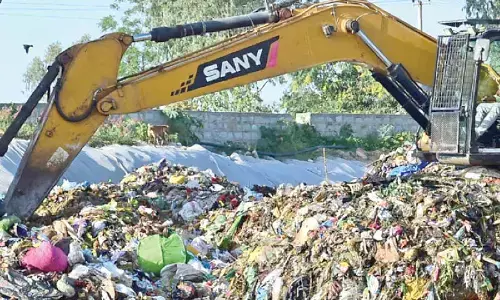Sitharaman lists progress on key G20 issues during India's presidency
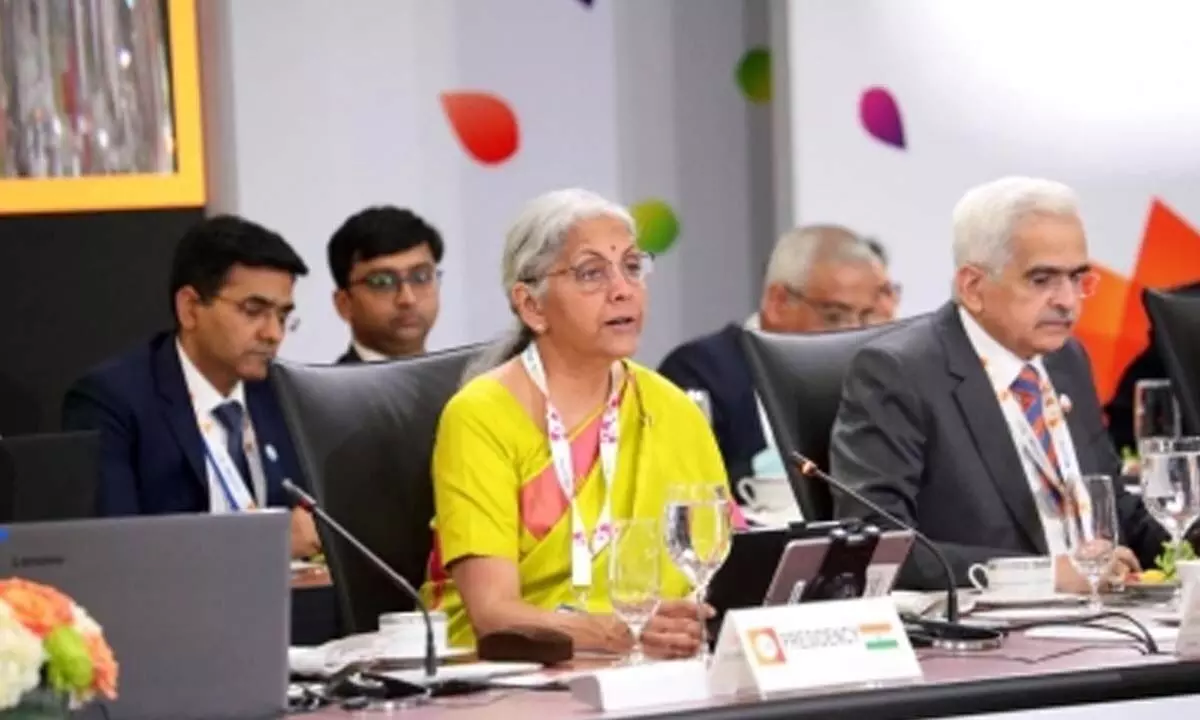
Finance Minister Nirmala Sitharaman on Thursday expressed satisfaction with the progress on multiple subjects that were discussed at the second meeting of G20 finance ministers and central bankers that took place here under the presidency of India, including the vexatious issue of sovereign debt servicing.
Washington: Finance Minister Nirmala Sitharaman on Thursday expressed satisfaction with the progress on multiple subjects that were discussed at the second meeting of G20 finance ministers and central bankers that took place here under the presidency of India, including the vexatious issue of sovereign debt servicing.
Sitharaman said that at a roundtable discussion on debt servicing on Wednesday was "absolutely positive" with all stakeholders, including China, "positively engaged".
The first meeting of the G20 finance ministers and central bankers had taken place in Bengaluru in February and because of the lack of unanimity among the members over the Russian invasion of Ukraine, the group failed to issue a joint statement and had gone instead with a "Chair's statement", which is India's statement summarising the discussions.
The second meeting took place here in Washington D.C. on the sidelines of the annual World Bank Group's Spring Meetings this week. And the bar was set decidedly low to perhaps prevent a repeat of Bengaluru.
"We were very clear that we are not talking about communique or chair's statement," Sitharaman said.
A Co-Chairs Press Statement issued by the three hosts of the roundtable -- India as the G20 chair and the International Monetary Fund and the World Bank -- said that among other things members vowed to "urgently improve information sharing including on macroeconomic projections and debt sustainability assessments at an early stage of the process".
Global debt -- money owed by both countries and non-government entities -- stood at $235 trillion in 2022, according to IMF's debt database.
Though not as listed by the fund, worst cases of sovereign debt -- money owed by countries -- are Lebanon, Russia, Sri Lanka, Suriname and Zambia, which are officially in default; and Argentina, Ghana, Pakistan, and El Salvador may be on the brink.
The IMF estimates that 15 per cent of low-income countries are in debt distress and negotiations to help them resolve their obligations through restructured repayment plans are in a standoff between Western-backed multilateral lenders like the Fund and China, which is a top bilateral lender to developing countries. Beijing wants these institutions to take losses, "haircuts", to bail out nations in distress.
The second meeting of G20 finance minister and bank chiefs gave a renewed push to the efforts to end the standoff. And despite an absent joint statement, all participants, including China, were "positively engaged", as the Minister said.
Sitharaman also expressed satisfaction with progress on five other issues that India is prioritising since it took over the G20 presidency. Reforming multilateral development banks was second. It's an issue that India chose to focus on during its presidency.
The Minister said it's been "very well received" and cited as proof the acceptance of an expert committee that has been set up to lay out the path forward -- comprising Lawrence Summers, an American economist who served as Treasury Secretary, and N.K. Singh, an Indian bureaucrat and economist. Their report is expected by July.
Climate finance was Sitharaman's third. "This discussion on climate finance is also moving in a very positive direction, not just the current flow, but also the quantum that is required for meeting current climate challenges. And also looking at transitional costs, the technology that is required."
India has been critical of advanced economies who have failed to fulfill their commitments to a green fund set up to help less developed economies -- and therefore, less polluting historically -- meet their self-determined goals to mitigate emission of greenhouse gases.
The fourth, the Minister said, was the Global Partnership for Financial Inclusion -- a 2010 G20 initiative on financial inclusion.
"We've had discussions in Bengaluru and we are having the discussions here as well. Leveraging DPI -- that is Digital Public Infrastructure -- for achieving global financial inclusion, is a subject which every country has taken keen interest in, and people are looking at how best they can catch up with bringing inclusion through the use of technology."
The fifth, Sitharaman said, is the issue of international taxation. It's about how to tax e-companies such as Amazon that are based in one geographical location but have businesses around the world.


